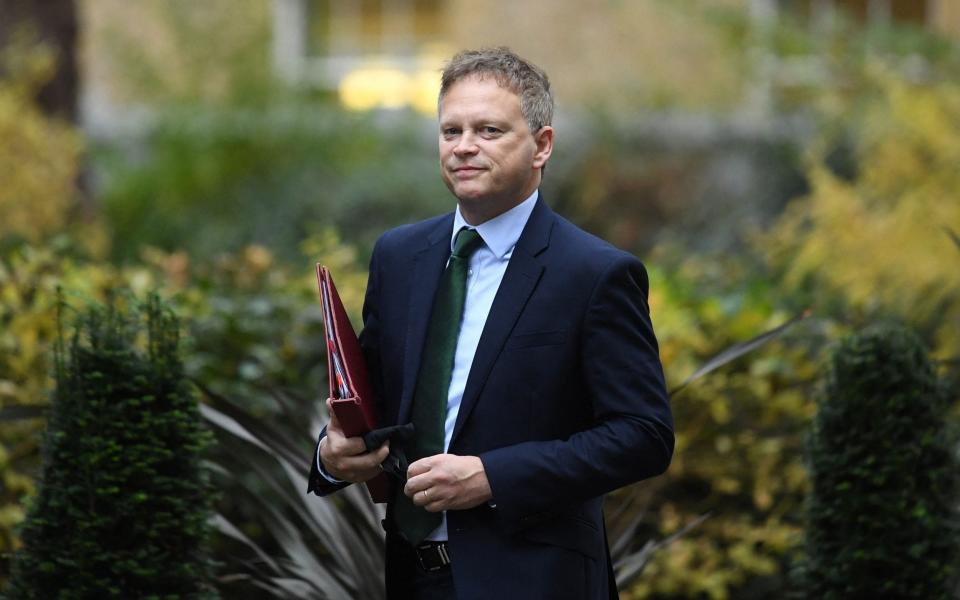Treasury shunts Boris Johnson’s rail revolution into the sidings

In his own words, Boris Johnson is a “great believer in rail”. But years of failing networks for the public left the Prime Minister dismayed at poor levels of services.
The answer, he said in May, was Great British Railways. A new public sector organisation to own and manage rail infrastructure, bringing track and trains under the control of one body for the first time in nearly two decades.
“This Government will deliver a rail system the country can be proud of,” Johnson promised.
The aim was for Great British Railways to absorb and replace Network Rail in 2023. But a timetable leaked to The Telegraph in September suggested Johnson was already set to break his promise. Now analysts are warning the new body might not be up and running for another three years.
A PowerPoint presentation circulated among Whitehall officials in September revealed the “development of policy and legislation” of Great British Railways – it would not be fully operational until June 2024.
It meant that, with the next general election scheduled for May 2024 at the latest, the next government would ultimately take responsibility for the biggest shake-up of the railways since the privatisation of the 1990s.
“These reforms are vital and we will not rush their introduction,” a Government spokesman said.
Industry insiders are unsurprised – one source referred to the “glacial pace” of setting up the fresh state-owned Great British Railways.
Some in the City are unconvinced that the new body, a central recommendation of a Government review of the railways, will see the light of day any time soon.
James Lockyer, an analyst at stockbroker Peel Hunt, told his clients on Thursday: “In light of historic changes (or lack thereof) by similar governments, we err on the side of change being slow: whatever the outcome, it is three-plus years out.”
This would suggest Great British Railways will not be fully up and running until at least 2025.
However predictable, the slow pace of change is in part because of a number of factions within Whitehall that are pulling in different directions.
While Transport Secretary Grant Shapps is keen to get a move on, not all officials share this view.

Peter Wilkinson, director of rail passenger services at the Department for Transport, did not mince his words on an internal industry call in October. According to others on the call, he is alleged to have said that Great British Railways is likely to act as a “benevolent dictatorship”.
Another key reform to cull franchising and pay operators a fixed fee to run services, will create a “master-slave” relationship with train companies in thrall to the state, said Wilkinson.
Industry sources highlight that “punch-up Pete” – as he is known by trade union leaders over his tough approach to collective bargaining – is unlikely to be overly positive about Shapps’ reforms.
His job, for which he is remunerated £100,000 more than the Prime Minister each year, could be rendered redundant if and when the changes become a reality.
The Treasury is also far from happy about the Department for Transport splashing the cash on the new body, with the pandemic having cost the Exchequer more than £15bn in subsidies.
A recent report by regulator the Office of Rail and Road, meanwhile, suggested that costs have continued to rise during the crisis despite services being cut.
Rishi Sunak set aside £205m “to begin the mobilisation of Great British Railways” in his October Spending Review.
Industry sources, however, say the cost of the new body on taxpayers is likely to be in the billions rather than the millions – money the Treasury is unwilling to spend.
It comes in part from growing hires to manage the task. Andrew Haines, the boss of Network Rail, has been tasked with the “mobilisation”, leading a “Great British Railways Transition Team” and it is understood this team has already swelled to 200 in number.
Despite Shapps having insisted that Great British Railways will not be “a bigger version of Network Rail”, critics will argue that with the slow pace and growing number of people involved, Great British Railways is on track to be exactly that.
And they will point to the proliferation of Whitehall ‘blob’ speak from Shapps.
“The Transition Team will now be responsible for driving forward reforms and creating the railway’s new guiding mind. They will initially focus on driving revenue recovery efforts post-pandemic, bringing a whole industry approach to tackling cost and promoting efficiency and establishing a strategic freight unit to boost the sector,” the Transport Secretary said in October.
Not everyone is disappointed by the slow pace. London-listed Trainline, the market leader in selling train tickets, had appeared to be under threat from another, impending strand of the rail reforms – the Government’s own ticketing website.
Around £400m was wiped off the value of the business in May as the proposals were announced.
As hedge funds - including George Soros, the “man who broke the Bank of England” by betting against the pound in 1992 - bet against the business, Trainline’s stock remains depressed. Unnaturally so, according to Lockyer.
“We see Trainline below the curve, driven mainly by market sentiment around the Williams-Shapps review,” he says.
The company’s share price has dropped almost 40pc this year. The bear case is that if Trainline’s software will not be used to power the new Great British Railways website, its stock could be worth even less.
But given the slow pace of change in implementing the wider rail reforms, its near-monopoly does not appear to be under threat from a state-owned rival for the foreseeable future - if at all.

 Yahoo Finance
Yahoo Finance 